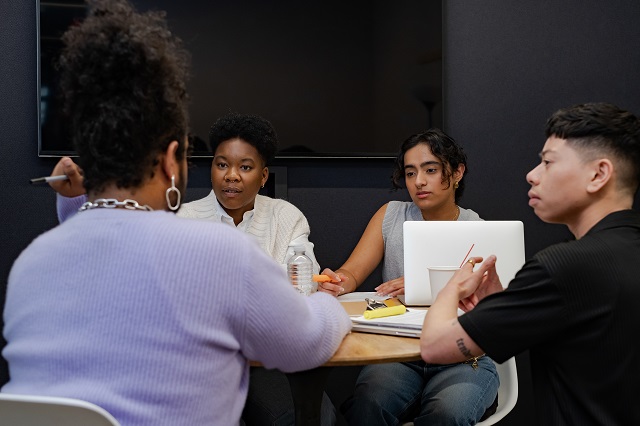MOH Evidence Review, Position Statement and Consultation on the use of puberty blockers; community responses and additional information; new ERO report on RSE
Mon 16 Dec 2024
This story highlights the Ministry of Health's evidence brief, position statement and consultation process on the use of puberty blockers by transgender young people. The Education Review Office's new report on RSE is also covered.

Manatū Hauora | Ministry of Health (MOH) have released their evidence brief and position statement on the use of puberty blockers for gender identity issues.
The Position Statement sets out expectations of greater precaution in the prescribing of puberty blockers to transgender young people. It also advised deferring the prescription of puberty blockers to transgender young people to interprofessional teams experienced in administering gender-affirming healthcare to transgender children.
The MOH has also announced that it has been asked by Government to hold a public consultation on whether additional restrictions are needed on the use of puberty blockers in young people with gender-related health needs including “…additional safety measures for puberty blockers, such as regulations under the Medicines Act.”
MOH stated “In particular, the Ministry seeks input from organisations that represent people who may be affected by safety measures or that may be involved in how safety measures are used in practice.” Submissions are due 20 January 2025.
Community responses
Gender Minorities Aotearoa (GMA), a national transgender organisation, have undertaken an analysis of the MOH’s review of the use of puberty blocker, which found that the MOH's Evidence Brief, Position Statement, and consultation are discriminatory. They argue that the MOH is adding extra scrutiny to gender-affirming treatment for young people only if they are transgender: “Creating further regulations and restrictions specifically for transgender people is sex based discrimination.”
GMA highlight the double standard in the provision of gender affirming healthcare:
“Blocking hormones during puberty is normal. It is the usual medical approach to children with unwanted sex characteristics. Unless those children are transgender.”
GMA also highlight methodological concerns including that the initial framing of the MOH review’s scope focused on puberty blockers effects on general wellbeing and “gender dysphoria”, and not on the physiological changes the medicines are sought for. Further concerns include:
-
That MOH “downgraded studies that looked at what transgender people said about their wellbeing, and didn’t see it as good evidence if transgender people’s bodies changed, or if they said the treatment worked and was helpful.”
-
MOH claims that “evidence about gender dysphoria being reduced by puberty blockers was bad evidence if the researchers didn’t also check if psychological support, family support and school support could fix “gender dysphoria.””
-
“[s]tudies were assessed as “low quality” (or “at risk of bias”) if a majority of the transgender children receiving puberty blockers had a supportive environment.”
GMA have also criticised the MOH’s decision to hold a public consultation on this matter. They highlight that the MOH “does not use a public consultation process to decide the medical care of any other group.” They also draw attention to the risk associated with holding a public consultation given the heightened interest of the “large international population of anti-transgender extremist groups.”
Jennifer Shields, the president of the Professional Association for Transgender Health Aotearoa (PATHA), commented that, “[i]t’s highly unusual and inappropriate to engage in public consultation on a medical matter, particularly for a minority group already exposed to increasing levels of hatred and disinformation…[t]his process is discriminatory, already doing harm, and has the potential to do massive and irreversible damage to a generation of trans children.”
The MOH has also been criticised by both GMA and PATHA for the inadequacy of its direct consultation with the rainbow community. They, alongside 24 other representatives from rainbow community organisations were invited to a single, shared 30-minute consultation meeting which was later extended to 60 minutes.
The MOH's brief was delayed a number of times in part to take the findings of the Cass Review in the UK into account. For more information on methodological flaws of The Cass Review, see An Evidence-Based Critique of “The Cass Review” on Gender-affirming Care for Adolescent Gender Dysphoria (2024) published by the Yale School of Medicine, as well as the British Medical Association’s call to immediately halt the implementation of the reviews findings.
Resources for making a submission
Several organisations have produced resources for making submissions on the MOH’s consultation. Submissions are due 20 January 2025.
InsideOUT Kōaro, a national charity providing education, resources, consultation, and support for anything concerning Rainbow and Takatāpui communities, have published their Submission guide for puberty blocker restrictions.
Te Ngākau Kahukura, an organisation working to make communities, environments, and systems safe and inclusive for Rainbow people, have compiled a list of resources to help people understand the issue and to support them to make a submission.
GMA have also provided information and advice on the consultation towards the end of their analysis of the puberty blocker review. For additional information on puberty blockers, see their primer Puberty blockers and differing ethical perspectives (2024).
Emily Writes has written on the MOH’s consultation and has provided information on writing an effective submission in, How you can stand up for trans kids being targeted by this government.
See also the publication of the review into Queensland’s gender services, which found they delivered safe and evidence-based care.
Related News
The Education Review Office (ERO) has published Let’s talk about it: Review of relationships and sexuality education (2024). In their media release, ERO shared that they found "too much inconsistency in relationships and sexuality education.” Underscoring its importance, they write “Relationships and sexuality education plays an important role in teaching students to identify and reject misinformation and harmful attitudes.”
The media release also shares ERO’s findings and concerns about the existing consultation process schools must currently undertake with regards to relationships and sexuality education (RSE). ERO found that the diverging views held by parents and students as well as between male and female students, and mothers and fathers, made consultation difficult. To address these concerns, “ERO is also calling for schools to be required to inform and explain to parents what will be taught in relationships and sexuality education, rather than consult.”
The Government has welcomed the ERO report and its findings that the delivery and content of the current RSE curriculum is inconsistent and is, in some instances, failing to meeting the need of student. In their response to the report, Education Minister, Erica Stanford, announced that the MOE will be developing a new RSE curriculum, stating “[a] draft of the topic areas to be taught will be available from Term 1 with consultation open later in 2025.”
Related Media
Puberty blockers: Health Ministry releases evidence brief, 1News, 21.11.2024
Careful approach to puberty blockers – Expert Reaction, Science Media Centre, 21.11.2024
Image: Devin Avery on Unsplash






